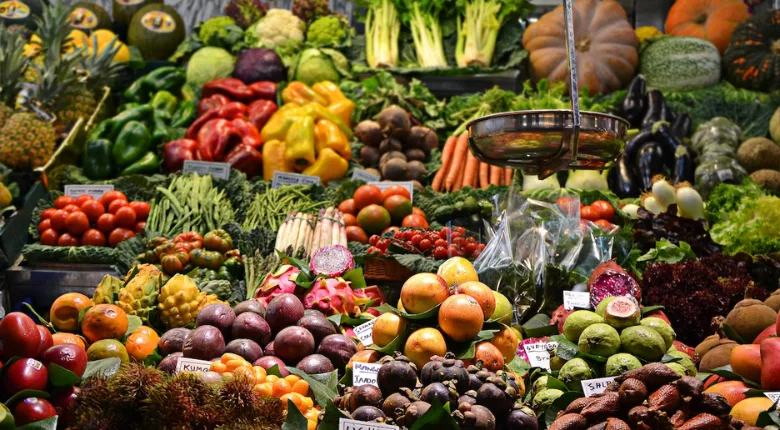Spanish Food Safety Agency Identifies Which Fruits, Vegetables are Most Risky to Sell in Bulk

Image credit: Jacopo Maia via Unsplash
In support of the country’s efforts to reduce food packaging waste by increasing the amount of produce that is sold in bulk, the Spanish Agency for Food Safety and Nutrition (AESAN) has compiled a report that determines which fruits and vegetables are most at risk of spoilage when sold in bulk and the associated food safety risks.
The Spanish Royal Decree 1055/2022 on packaging and packaging waste establishes measures aimed at the prevention of waste, the promotion of bulk food sales, the increase of reusable packaging and the promotion of recycling and marking of products. In particular, paragraph 4 of Article 7 states that food retailers shall take the necessary measures to present fresh fruit and vegetables marketed whole in bulk. The obligation does not apply to fruit and vegetables packed in lots of 1.5 kilograms or more, fruit and vegetables packed under a protected or registered variety or bearing an indication of differentiated quality or organic farming, or fruit and vegetables that present a risk of spoilage or depletion when sold in bulk.
The report identifies mechanical damage, water loss, and microbial contamination as the main causes of spoilage in vegetables and mushrooms marketed in bulk. While packaging may minimize some of the deterioration factors, fruit may be more susceptible to mechanical damage due to loss of firmness. Additionally, physiological and compositional changes occur during ripening, such as sugar production from reserve polysaccharides, which make fresh fruits and vegetables more susceptible to microbial growth.
Increased mechanical damage and risk of cross-contamination by viruses and pathogenic bacteria are expected in bulk-marketed vegetable and mushroom products. Contamination may have a greater impact on vegetable products that are consumed raw and unpeeled. Although ripening leads to a higher susceptibility to mechanical damage, and consequently to microbial spoilage, it is difficult to objectify a risk maturity level to be applied across the board to all vegetables, especially fruits.
Cleaning, conditioning and cutting of external parts of vegetables marketed in bulk can lead to an increased likelihood of microbial contamination, as well as increased water loss, so it is recommended to reduce or limit these actions.
AESAN proposes a non-exhaustive list of the most commonly consumed fruits, vegetables, tubers, or mushrooms that present a risk of spoilage or depletion when sold in bulk, based on the risk of mechanical damage, water loss, and microbial spoilage by pathogenic or spoilage microorganisms. The list of commodities and their assigned overall risk levels are as follows:
- Very high: Red fruits (blueberries, raspberries, strawberries, blackberries, and currants) and sprouts
- High: Edible flowers, aromatic herbs (peppermint, mint, coriander, chives, parsley, basil, dill, cherries, and fresh oregano), some pome fruits (grapes, lychees, and physalis), some leafy vegetables (lettuce, endive, buds, escarole, arugula, lamb's lettuce, chicory, kale, pak choi, chard, and spinach), mushrooms, stone fruits (cherries and apricots), infructescences (figs and fresh brews), and inflorescences (brussels sprouts, broccoli, and cauliflower)
- Medium: Stem and root vegetables (celery, radishes, carrots, scallions, tender garlic, and asparagus), fruit vegetables (cherry tomatoes and mini varieties, and chili peppers), some pome fruits (loquats and persimmons), and some leafy vegetables (cabbage).
ASEAN concluded that no tubers present a significant risk when sold in bulk.
In order to minimize the occurrence of defects in bulk vegetable products it is recommended that good hygiene practices (GHPs) are followed in primary production, storage, and distribution of the products. The post-harvest period should be kept as short as possible. ASEAN also highlights the importance of GHPs at retail to prevent mechanical damage and microbial contamination, and recommends that retailers encourage customers to follow relevant GHPs as well.
Looking for quick answers on food safety topics?
Try Ask FSM, our new smart AI search tool.
Ask FSM →








